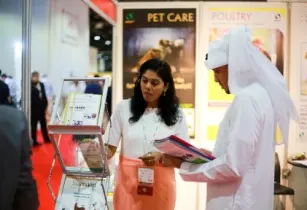Case IH and its distributor Al Shirawi Enterprises participated in AgraME 2018, the show dedicated to crop farming, animal farming, aquaculture and animal health, which was held in Dubai from 6 – 8 March 2018
Event News
SA Companies to showcase products at Foodex Trade Fair in Japan
Twenty-eight South African companies will showcase their products and services at the Foodex Trade Fair in Chiba City, Japan from 6-9 March 2018
Omex Agrifluids at Agritech Expo Zambia 2018
Omex Agrifluids will participate in Agritech Expo Zambia set to be held from 12-14 April 2018 at Gart Research Centre in Chisamba, Zambia
Kenya declared Guinea Worm free country
The eradication of guinea worm (GW) makes it the second human disease to be wiped off Kenyas map after smallpox
Middle East's first free-to-attend animal health conference to offer CPD accreditations
AgraME, one of the largest exhibitions in the Middle East highlighting products and services from different agricultural sectors, is taking place on 6-8 March 2018, at the Dubai World Trade Centre








